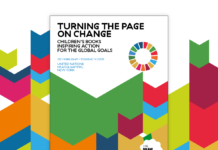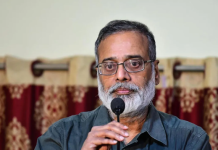
Vanessa Dougnac, the South Asia Correspondent for four French publications, who had been the longest-serving foreign correspondent in India, announced her departure from India on 16 February, after the Indian government said her Overseas Citizen of India (OCI) card would be revoked over alleged ‘malicious’ reporting.
Dougnac was informed by the ministry of Home Affairs that her OCI card would be revoked over her reporting that allegedly created a negative perception of India by inciting disorder, for not taking permission to travel to restricted areas, and reporting on neighboring countries. Dougnac denied the accusations.
Based in New Delhi, she was a correspondent for several media houses in Europe, including the French mainstream daily La Croix, the weekly magazine Le Point, Swiss daily Le Temps, and Belgian daily Le Soir.
“Today, I am leaving India, the country where I came 25 years ago as a student, and where I have worked for 23 years as a journalist. The place where I married, raised my son, and which I call my home,” Dougnac said in a statement.
Dougnac announced her departure from India on 16 February, after the Indian government issued a two-week revocation of her OCI card. The notice sent by the Ministry of Home Affairs was raised by French president Emmanuel Macron during his visit for India’s Republic Day celebrations.
After the notice was reported in the media, Dougnac issued a statement refuting all accusations and asserting full cooperation with the legal proceedings. In her most recent statement, she said that was being forced to leave.
Referring to the rejection of her application to work as a journalist while living in India with an OCI card, she stated, “Sixteen months ago, the ministry of Home Affairs denied my right to work as a journalist, providing no reasons nor justifications, and no hearing. Since then, the Ministry has not once responded to my repeated requests for explanations or review of this arbitrary action.”
On the MHA notice, Dougnac said the Indian government accused her articles of being malicious, of harming the interests of the sovereignty and integrity of India, and required her to explain why her OCI card should not be canceled. It claimed that Dougnac’s articles could provoke disorder and disturb peace.
She said while she would continue to challenge the accusations legally, the process had taken a toll and impacted her professionally, compelling her to leave. “Today, I am unable to work and have been unfairly accused of prejudicing the interests of the state. It has become clear that I cannot keep living in India and earning my livelihood. I am fighting these accusations before the competent forums and I have full faith in the legal process. But I can’t afford to wait for its outcome. The proceedings concerning my OCI status have shattered me, especially now that I see them as part of a wider effort by the Government of India to curb dissent from the OCI community,” she stated.
When Indian foreign secretary Vinay Kwatra acknowledged that France had raised Dougnac’s case, he claimed the actions against her had nothing to do with her reporting. “People are free to do what they are accredited to do in a given space. But here I think the principal issue is whether the person is compliant with the rules and regulations of the state under which they come,” he said at a media briefing on January 26. Kwatra claimed France had appreciated India’s frame of reference to look at the case purely through a lens of compliance with rules.
Reporters Without Borders’ editorial director Anne Bocandé said, “Forcing a seasoned professional journalist to leave India after she had been based there for two decades reveals a very dark and deplorable image of what press freedom has become under Prime Minister Narendra Modi. With two months to go to the general elections, the vice is tightening on foreign correspondents who try to cover India professionally.”
While the government is accused of stifling the press, India’s media freedom record has declined over the past decade, falling 21 places to 161 out of 180 on the World Press Freedom Index, where 1 shows the best environment for journalism.












